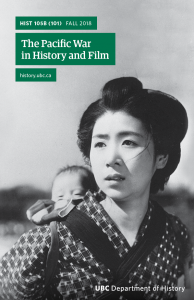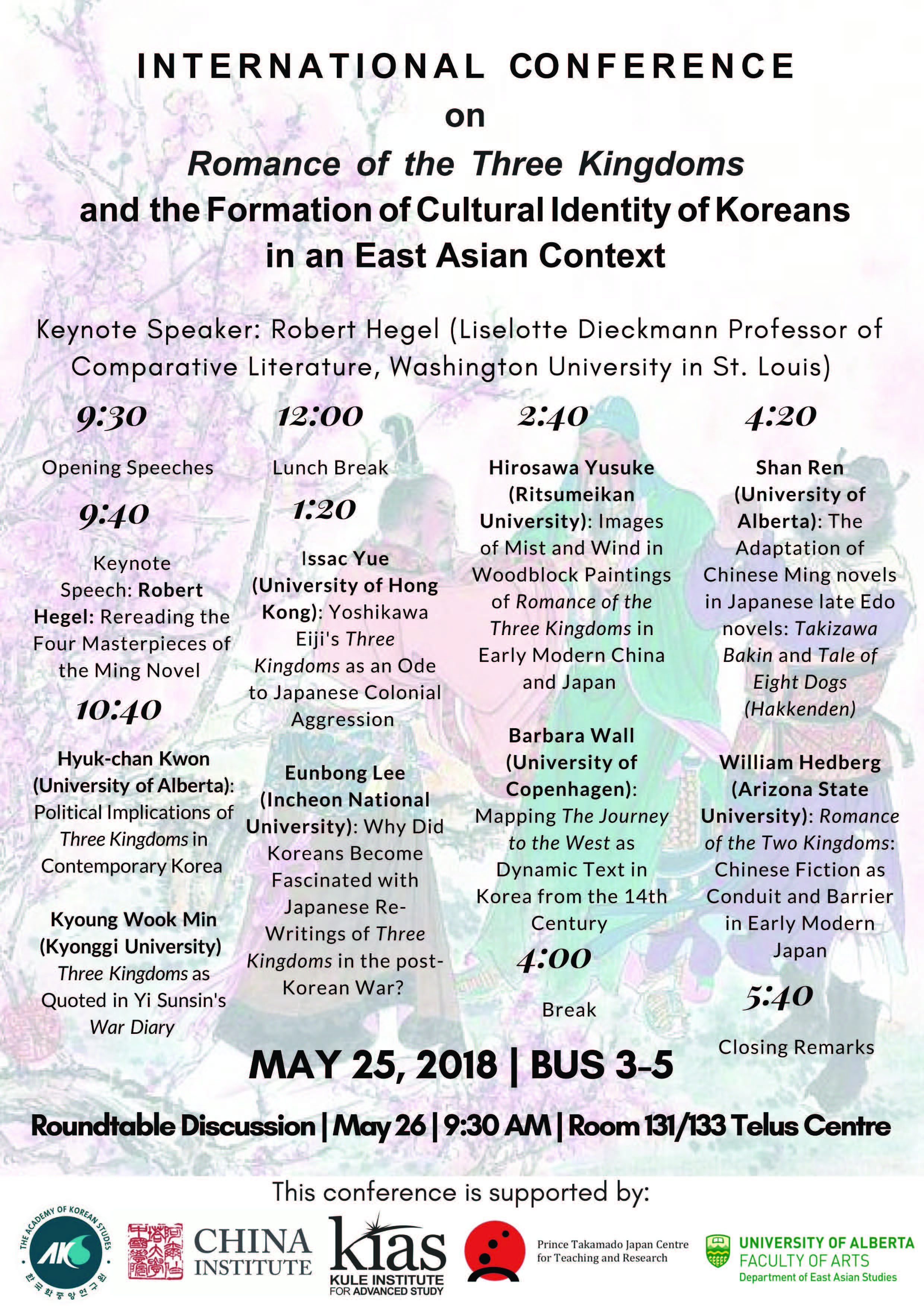
UBC Asian Studies is happy to announce IMVBox.com as an Educational Partner. Through this partnership, students will have access to an impressive online database of post-revolutionary Iranian films with English subtitles. This will be of particular benefit to our Iranian Studies program and to students taking ASIA 394 Post-Revolutionary Iranian Cinema.
IMVBOX is the only legal platform dedicated to streaming Iranian films, is the premier streaming service for Iranian films with English subtitles outside of Iran, and works closely with the Iranian Film Industry to bring you the very best in Iranian Cinema. They currently boast over 1600 feature films, short films, and television programs.
New partnership with IMVBOX will give students better access to Iranian films
$8,000 (USD) Award for a One Term Exchange to University of Washington
The Gary & Conseulo Corbett Canada-U.S. Fellowships Program will award $8,000 (USD) to an Exchange student going to University of Washington for their Winter (January 7-March 15) and Spring quarters (April 1 – June 7).
$8,000 (USD) would comfortably cover all costs associated with a one term exchange located in Seattle. You can experience a semester abroad at a US university with little to no financial impact and become part of an elite group of scholars.
Value: $8,000 (USD); 3 candidates will be selected.
Eligibility:
- You must be an undergraduate student in good standing at UBC whose educational goals would be well served by a year of study at The University of Washington, Seattle.
- You must hold Canadian citizenship or P.R.
- Students from all Faculties and disciplines are welcome to apply
- Priority will be given to students who have attended high school in British Columbia
- This is a cash award of $8,000 (U.S.) to help defray the additional travel costs and living expenses. Under the UW-UBC exchange agreement, UBC students pay regular UBC tuition, plus miscellaneous fees, to study at the University of Washington.
To apply for the award:
- Check the complete eligibility requirements for exchange
- Log on to Gateway
- Click on the “Search Experiences” tab.
- Search “Corbett” in the “Keywords” section. This will bring up the application.
- Select Term 2 as the term you wish to be abroad and complete your application.
Deadline: August 1, 2018
Please contact go.global@ubc.ca if you have any questions.
Class Announcement: HIST 105B Pacific War in History and Film

In 2018W, the topic for HIST 105B is Pacific War in History and Film. This course interrogates Japanese Pacific War films to contemplate how Japan’s contemporary history has been shaped by, and shapes, the presentation and memory of World War II in the Pacific. A particular emphasis will be on how the war was presented during wartime and has been remembered on film thereafter.
Are you interested in how history is presented on film? Have you ever wondered whether film reflects or shapes society’s views of historical events, or maybe if it does both? This course examines the interplay between cultural production and conventional memory. In other words, how and why has the popular understanding of historical events changed over time, and how can we trace that shift?
To examine this question, we will focus on one medium (Japanese films) and one historical topic (Japan’s invovlement in the Pacific War, 1937-1945). Our material will be films about the Pacific War made by some of Japan’s most celebrated directors — from classic auteurs Kurosawa, Mizoguchi, Ozu, and Kinoshita in the 1940s-1950s, to lesser-known iconoclasts Suzuki Seijun, Kobayashi Masaki, Masumura Yasuzo, Shinoda Masahiro, and Imamura Shohei in the 1950s-1960s, to household names like Ghibli animators Miyazaki Hayao and Takahata Isao today. Viewing these films, the class will ask how the historical narrative of Japan’s role in the Pacific War was presented during the conflict and how it has changed since then alongside contemporary developments in Japan’s postwar history.
Monday lectures held from 17:00-18:00
Wednesday screenings and film discussions held from 17:00-20:00
Fully-funded PhD Positions in University of Basel Available
Your position:
You will contribute to the research project by writing a doctoral thesis on one of the two following topics:
1. Exiled at Home! Writing Confucian Philosophy under Conditions of Censorship in the PRC (1949–1976)
2. The Politics of Anti-Confucianism and Philosophical Argument: The Debates between Confucians and Liberals in 1950s Taiwan.
For details, please visit Europa.unibas.ch
Applicant Profile and Qualifications:
- MA thesis in a topic and discipline relevant to the PhD research project
- Proficiency in Modern Chinese and in English
- The pursued PhDs can be done in either Philosophy, Political Science or European Global Studies, depending on your profile and career plans.
- Integration in an active research group
- Participation at conferences with your own contributions
- Support for publishing your results in peer-reviewed journals
The salary and the conditions of employment will be those of the University of Basel and the SNF.
Please send your complete application dossier, including a letter of motivation and CV (all documents in one e-mail as a single PDF-document) via e-mail to: bewerbung-eib@unibas.ch. Please indicate which of the two projects you are interested in pursuing. The closing date is July 5, 2018.
In case you have questions about the positions, please contact the head of the research project, Prof. Dr. Ralph Weber: ralph.weber@unibas.ch.
International Conference on Romance of the Three Kingdoms
This conference aims to illuminate the interplay between traditional literary cultures in an East Asian context by examining the reception and narrative developments of the major traditional Chinese novels, especially Sanguozhi yanyi 三國志演義 (Romance of the Three Kingdoms; hereafter Three Kingdoms) in East Asia.
All are welcome! Light refreshments will be provided.

Programme for May 25th:
9:30 am
Opening Remarks
9:40 am
Keynote Speech: Robert Hegel (Liselotte Dieckmann Professor of Comparative Literature, Washington University in St. Louis): Rereading the Four Masterpieces of the Ming Novel
10:40 am
Section I
Hyuk-Chan Kwon (Organizer, University of Alberta): Political Implications of Three Kingdoms in Contemporary Korea
Kyoung Wook Min (Kyonggi University): Three Kingdoms as Quoted in Yi Sunsin’s War Diary
12:00 pm
Lunch
1:20 pm
Section II
Isaac Yue (University of Hong Kong): Yoshikawa Eiji’s Three Kingdoms as an Ode to Japanese Colonial Aggression
Eunbong Lee (Incheon National University): After the Korean War, Why Were Koreans Captivated by a Japanese Version of Three Kingdoms?
2:40 pm
Session III
Hirosawa Yusuke (Ritsumeikan University): Images of Mist and Wind in Woodblock Paintings of Three Kingdoms in Early Modern China and Japan
Barbara Wall (University of Copenhagen): Mapping The Journey to the West as Dynamic Text in Korea from the 14th Century
4:00 pm
Break
4:20 pm
Session IV
Shan Ren (University of Alberta): The Adaptation of Chinese Ming novels in Japanese late Edo novels: Takizawa Bakin and Nansō Satomi Hakkenden (Tale of Eight Dogs)
William Hedberg (Arizona State University): Romance of the Two Kingdoms: Chinese Fiction as Conduit and Barrier in Early Modern Japan
5:40 pm
Closing Remarks
This conference is supported by The Academy of Korean Studies, The China Institute, Kule Institute for Advanced Study, Prince Takamado Japan Centre for Teaching and Research, and Department of East Asian Studies at University of Alberta.
